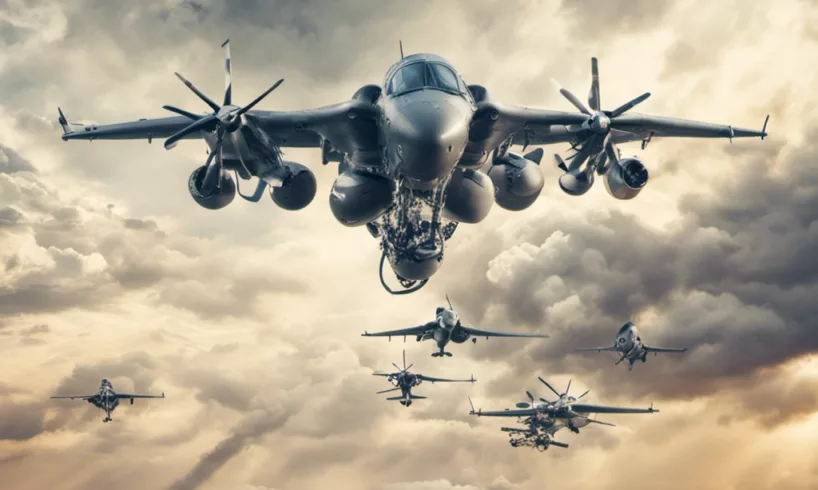
Human Pilots Hand Over Control to A.I. Systems
In a groundbreaking development, human pilots are relinquishing control to advanced artificial intelligence (A.I.) systems in military aviation. This shift marks a significant milestone in the integration of technology and human expertise, raising questions about the future role of pilots and the implications of relying on A.I. in combat situations. As the A.I. takes command, it is met with mixed emotions from the pilots who have dedicated their lives to flying missions in conflict zones. This article explores the implications of this transition and the broader impact of A.I. in military aviation.
A.I. Takes the Helm: The Bittersweet Transition
As the A.I. assumes control, human pilots find themselves in a bittersweet situation. On one hand, they witness the culmination of years of technological advancements, enabling the seamless integration of A.I. systems into aircraft. On the other hand, they face the reality of potentially being replaced by these very systems. Alan Aubuchon, a veteran pilot, encapsulates this sentiment, expressing both pride in the progress made and a sense of loss as he states, “It's bittersweet because what we're doing is we're working ourselves out of a job.”
The Advantages of A.I. in Military Aviation
The integration of A.I. in military aviation brings numerous advantages to the table. A.I. systems have the potential to process vast amounts of data in real-time, enabling quicker decision-making and enhanced situational awareness. These systems can analyze complex scenarios, detect patterns, and predict outcomes, providing invaluable support to human pilots. Additionally, A.I. can withstand extreme G-forces and operate under hazardous conditions, reducing the risk to human lives.
Enhancing Human Performance: A Collaborative Approach
Contrary to replacing human pilots, A.I. systems are designed to complement and enhance their capabilities. By offloading routine tasks and processing data, A.I. allows pilots to focus on higher-level decision-making and strategic planning. This collaborative approach aims to leverage the strengths of both humans and machines, creating a synergy that maximizes operational efficiency and effectiveness.
Ethical Considerations and Safety Measures
The integration of A.I. in military aviation raises ethical considerations and necessitates robust safety measures. Questions regarding accountability, decision-making authority, and the potential for A.I. to make errors require careful examination. Striking the right balance between human oversight and A.I. autonomy is crucial to ensure the ethical and responsible use of these systems in combat situations. Furthermore, stringent safety protocols must be in place to prevent cyber threats and ensure the reliability and resilience of A.I. systems.
Training and Adaptation: Preparing for the Future
As A.I. systems become more prevalent in military aviation, the training and adaptation of pilots become paramount. Pilots must acquire a deep understanding of A.I. capabilities and limitations to effectively collaborate with these systems. Additionally, ongoing training programs should focus on enhancing human-machine interaction and decision-making in complex and dynamic environments. Adapting to this new paradigm will be essential for the future generation of military aviators.
The integration of A.I. in military aviation marks a significant milestone in the evolution of warfare. As human pilots hand over control to A.I. systems, the implications for the future of aviation and the role of pilots are profound. While the advantages of A.I. in terms of enhanced situational awareness and operational efficiency are undeniable, ethical considerations and safety measures must be carefully addressed. The collaborative approach between humans and A.I. systems holds great promise, allowing pilots to leverage the strengths of technology while retaining their critical decision-making capabilities. As we navigate this new era, it is imperative to strike a balance that ensures the responsible and ethical use of A.I. in military aviation.

Alejandro Rodriguez, a tech writer with a computer science background, excels in making complex tech topics accessible. His articles, focusing on consumer electronics and software, blend technical expertise with relatable storytelling. Known for insightful reviews and commentaries, Alejandro's work appears in various tech publications, engaging both enthusiasts and novices.
Follow us on Facebook







